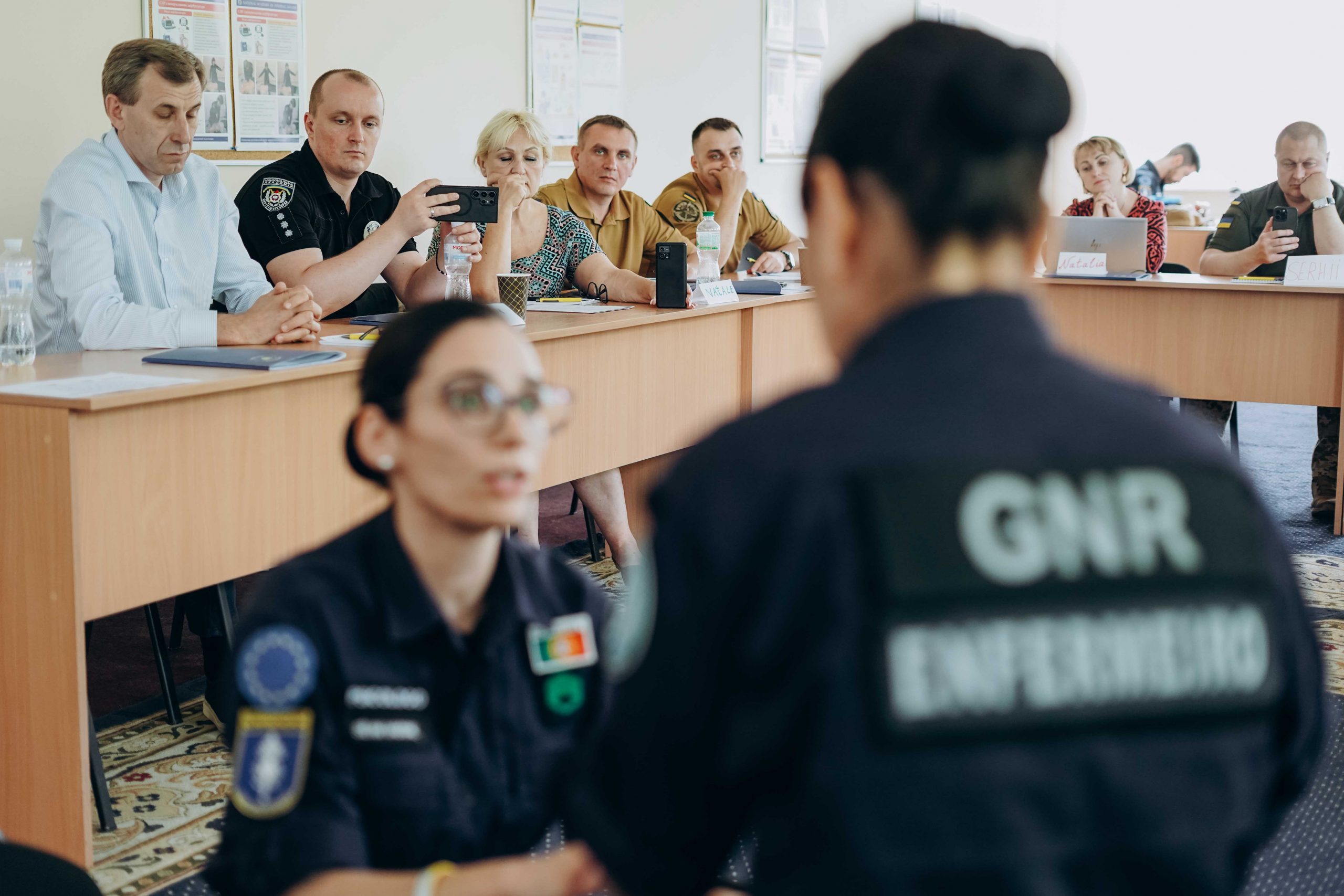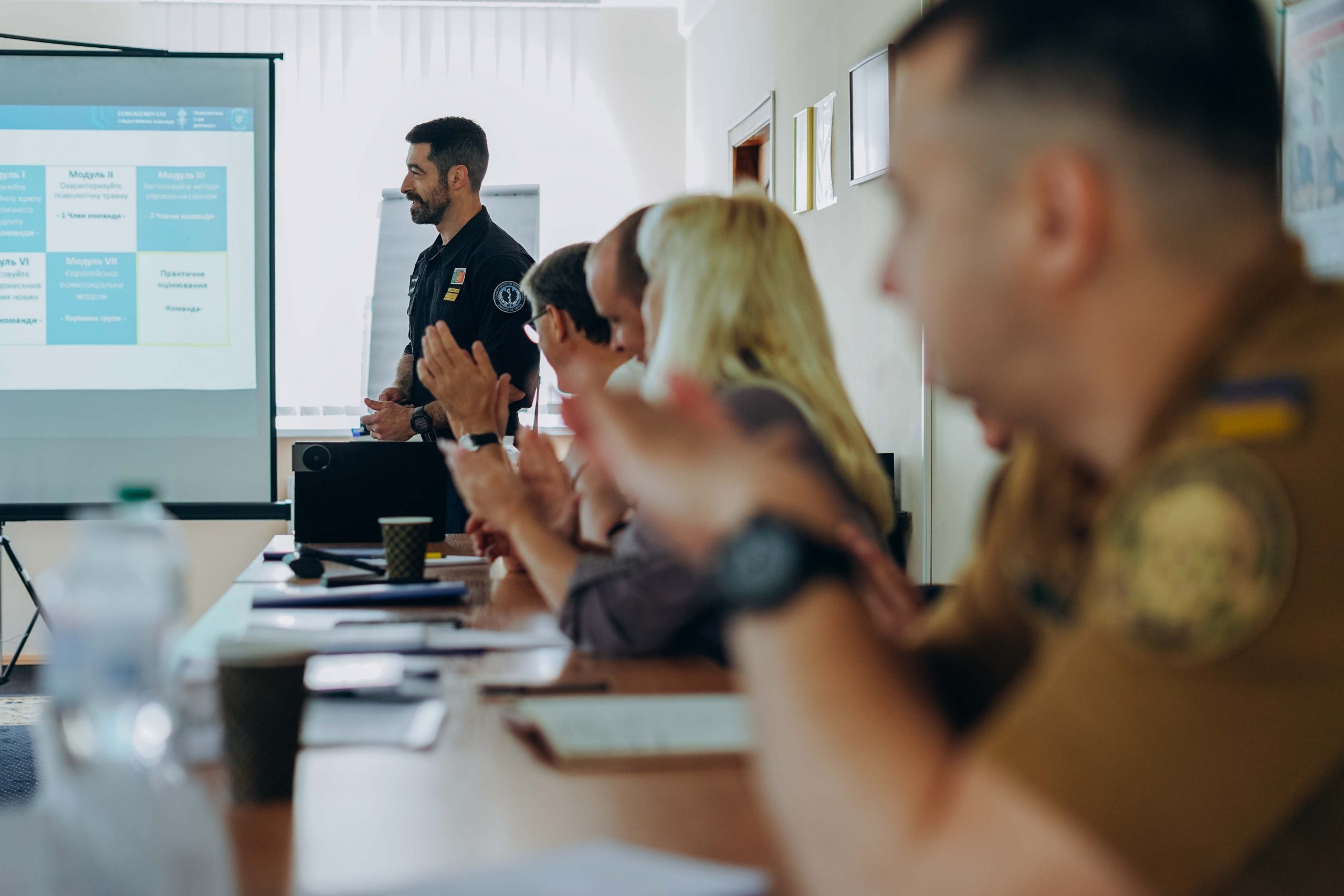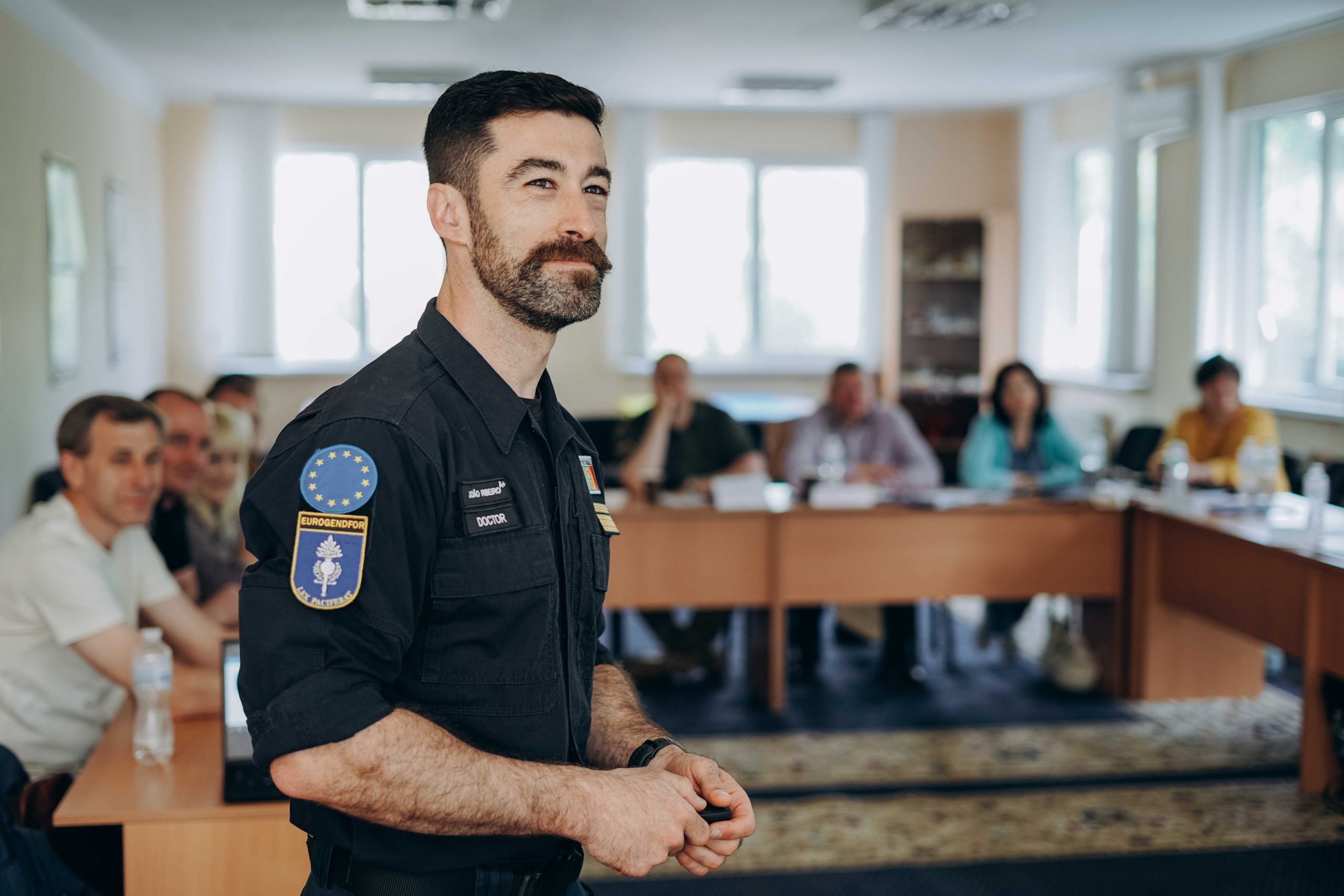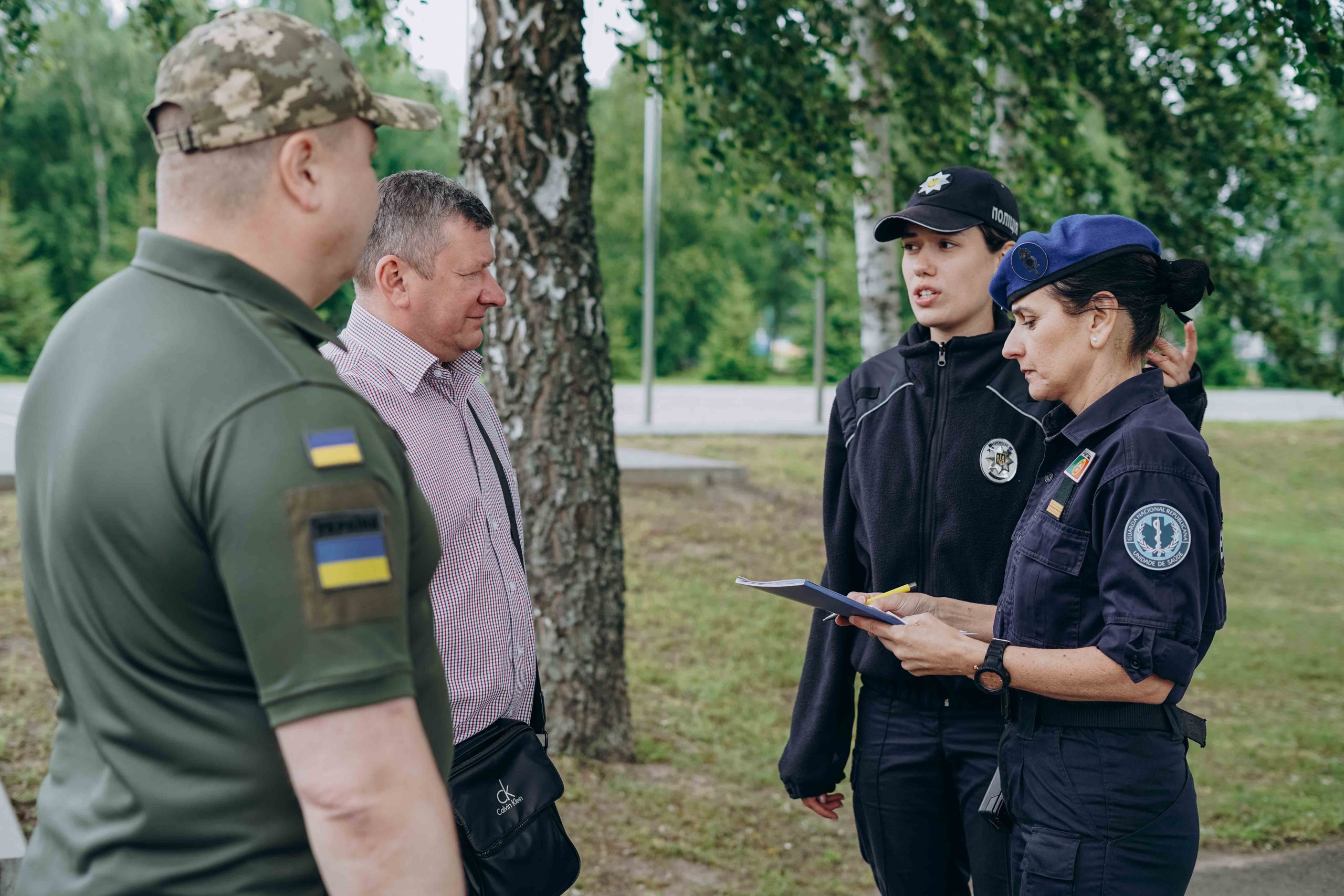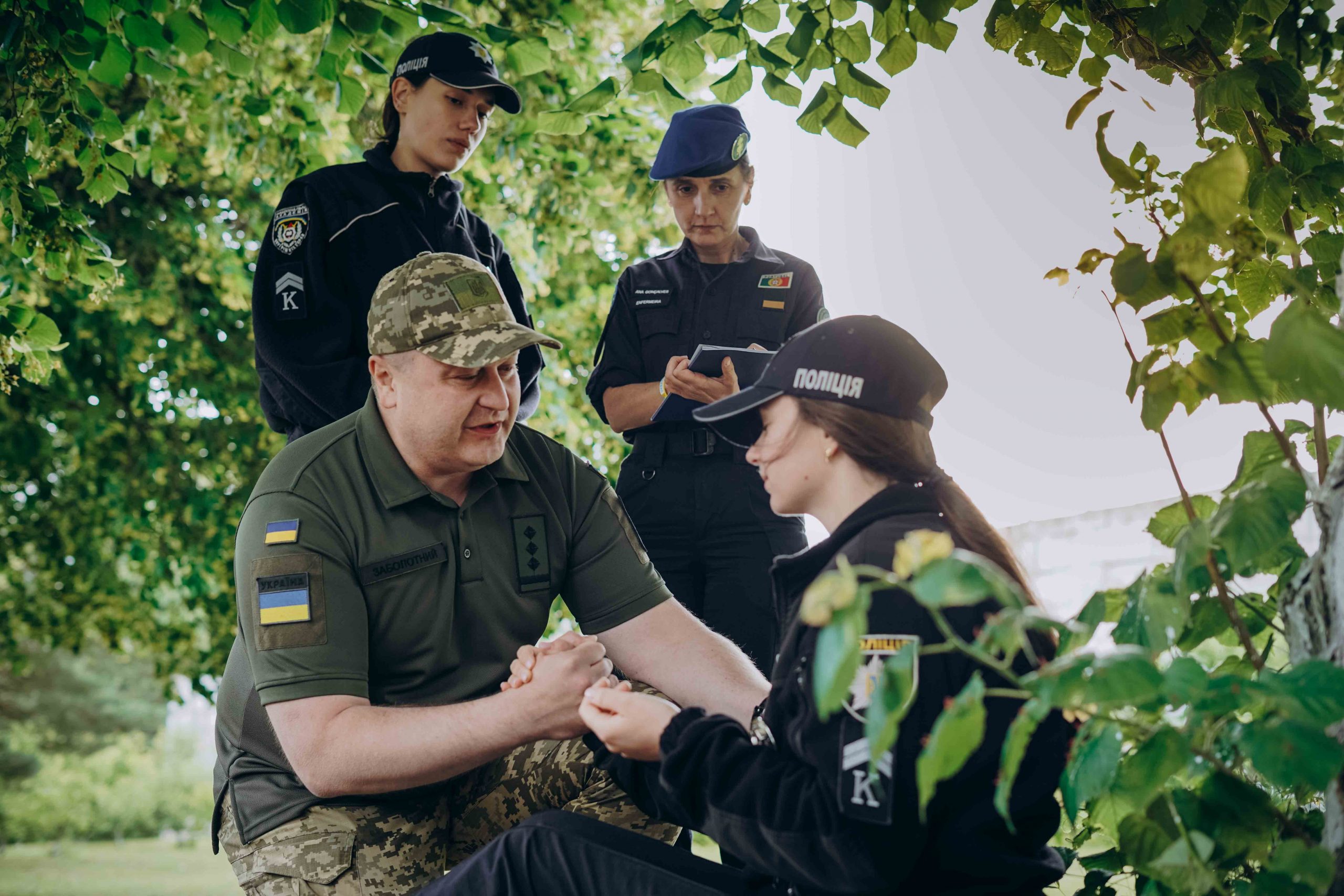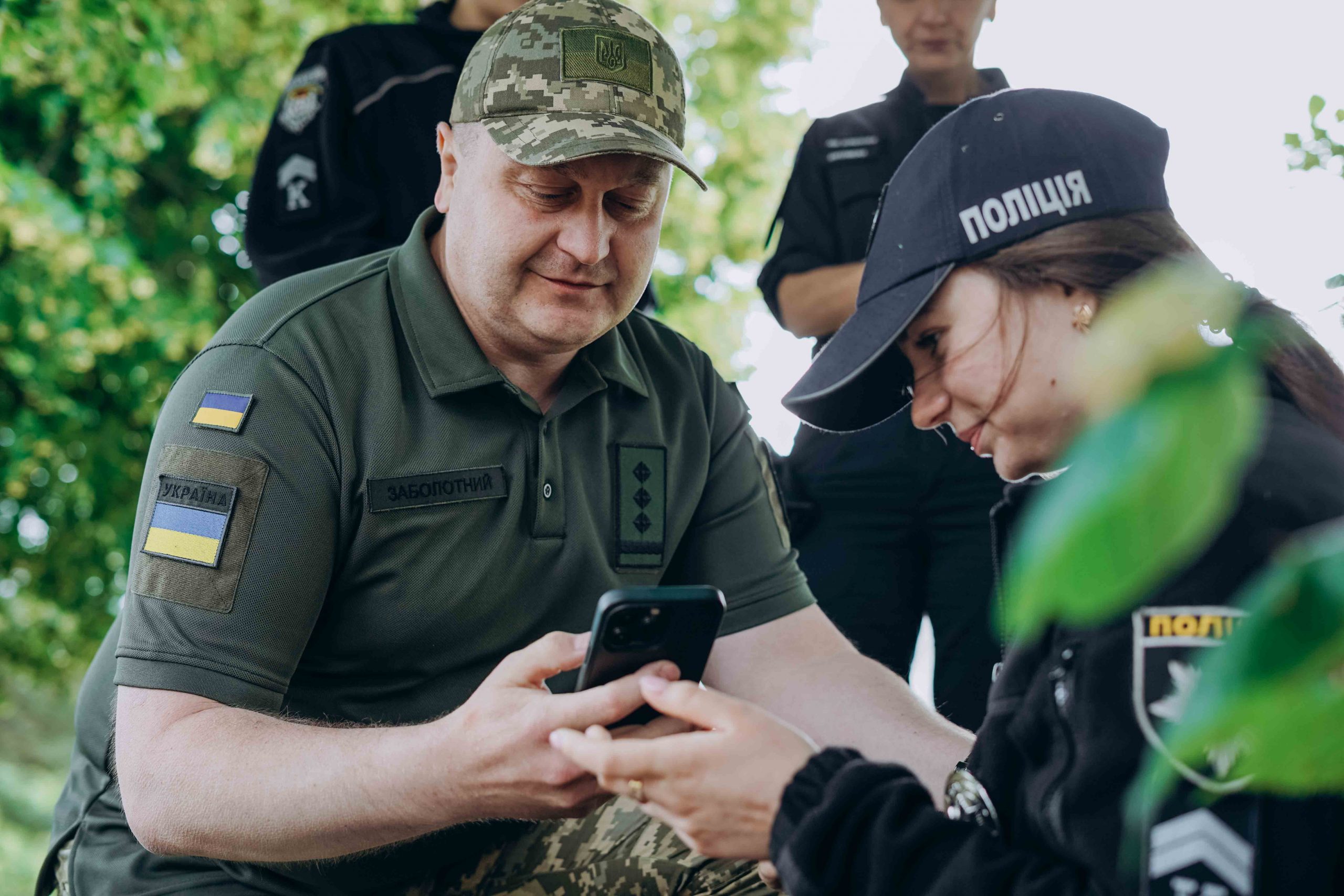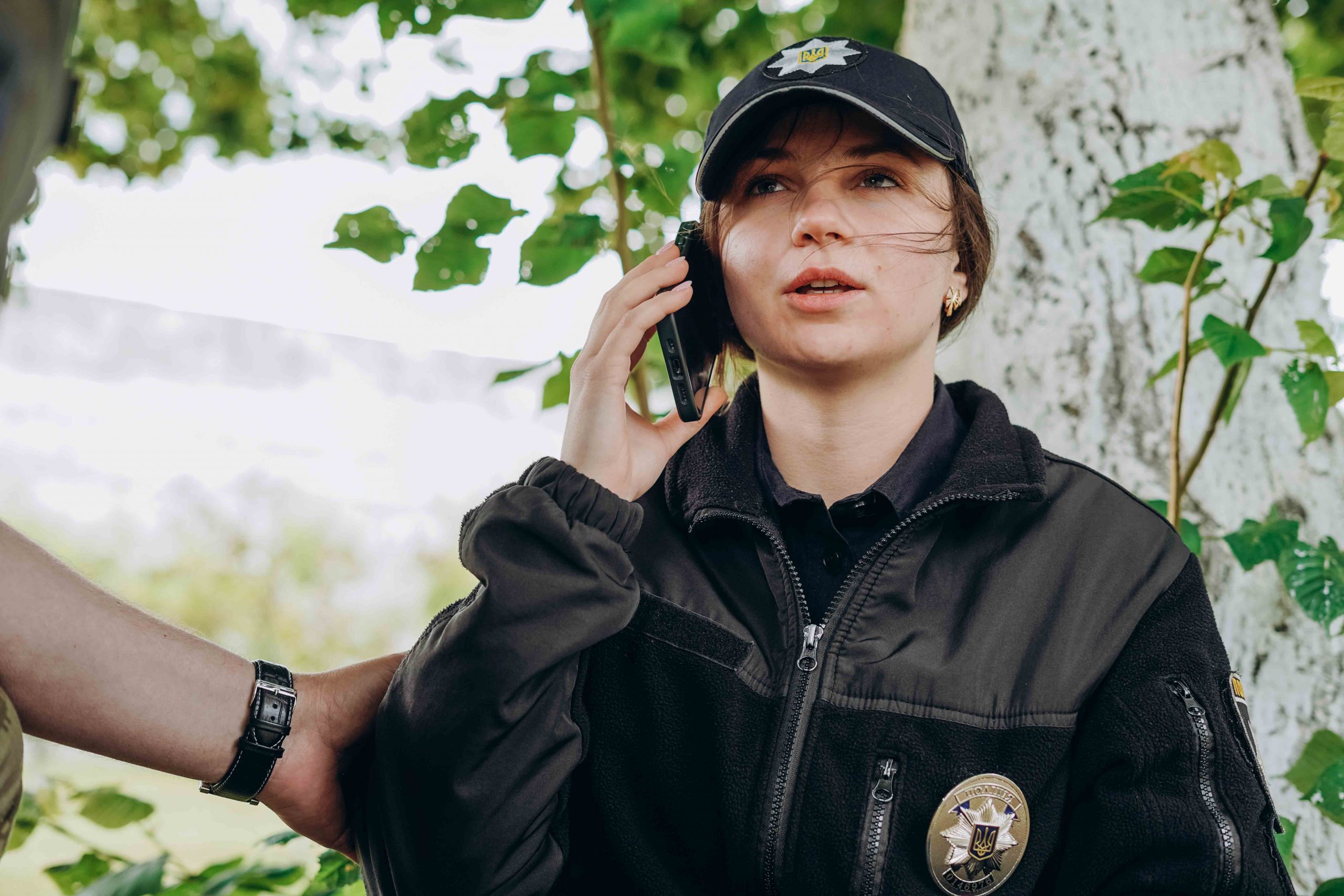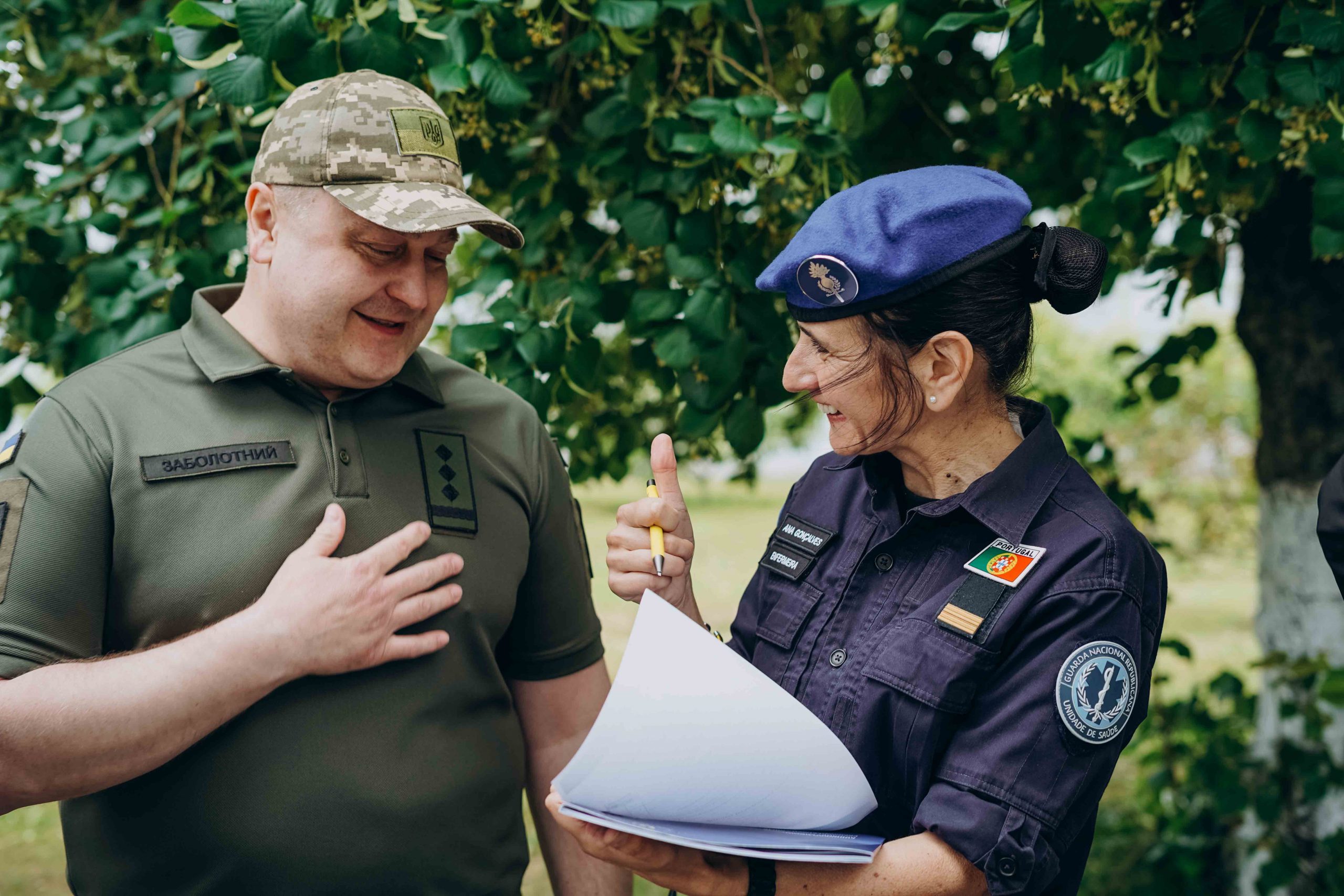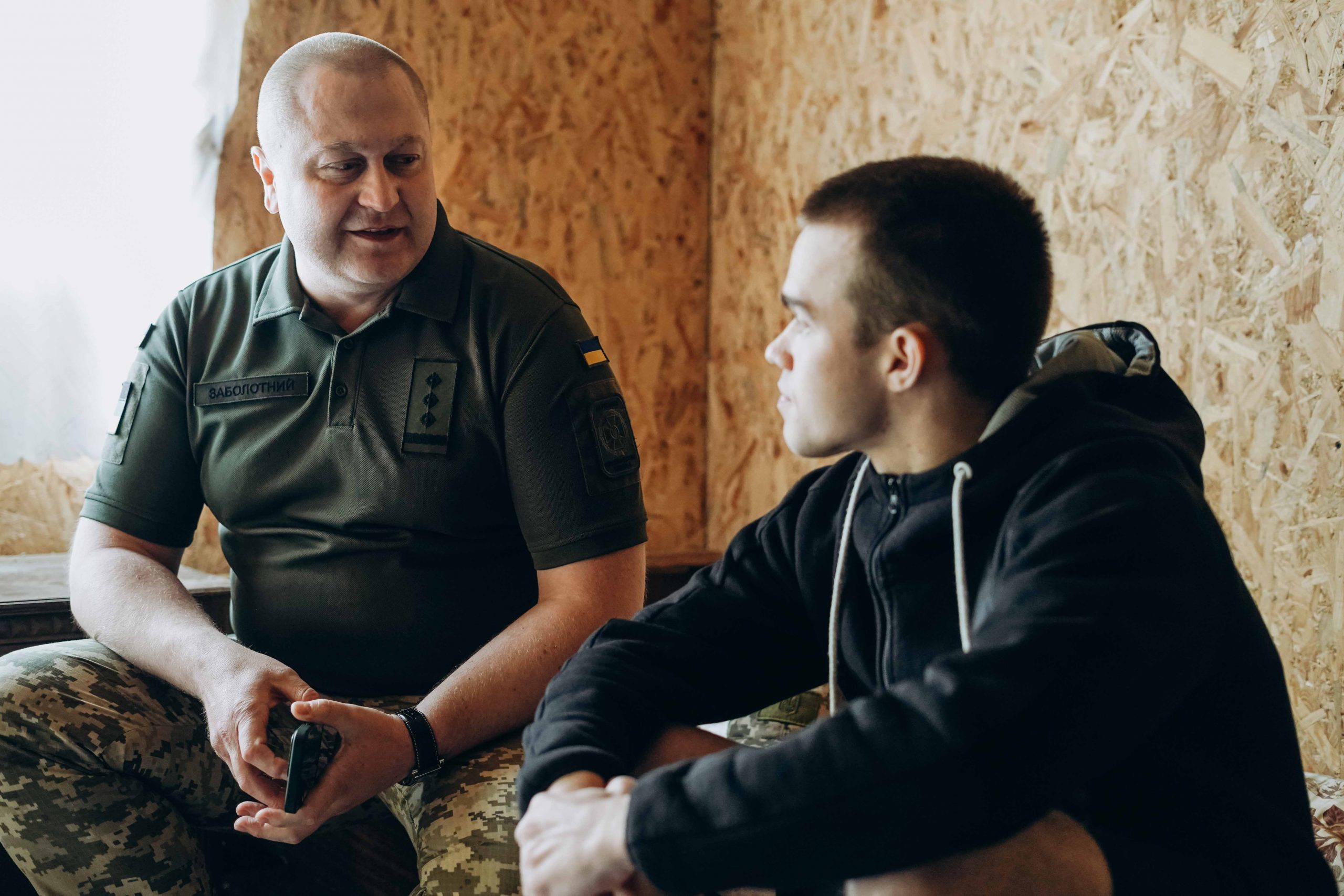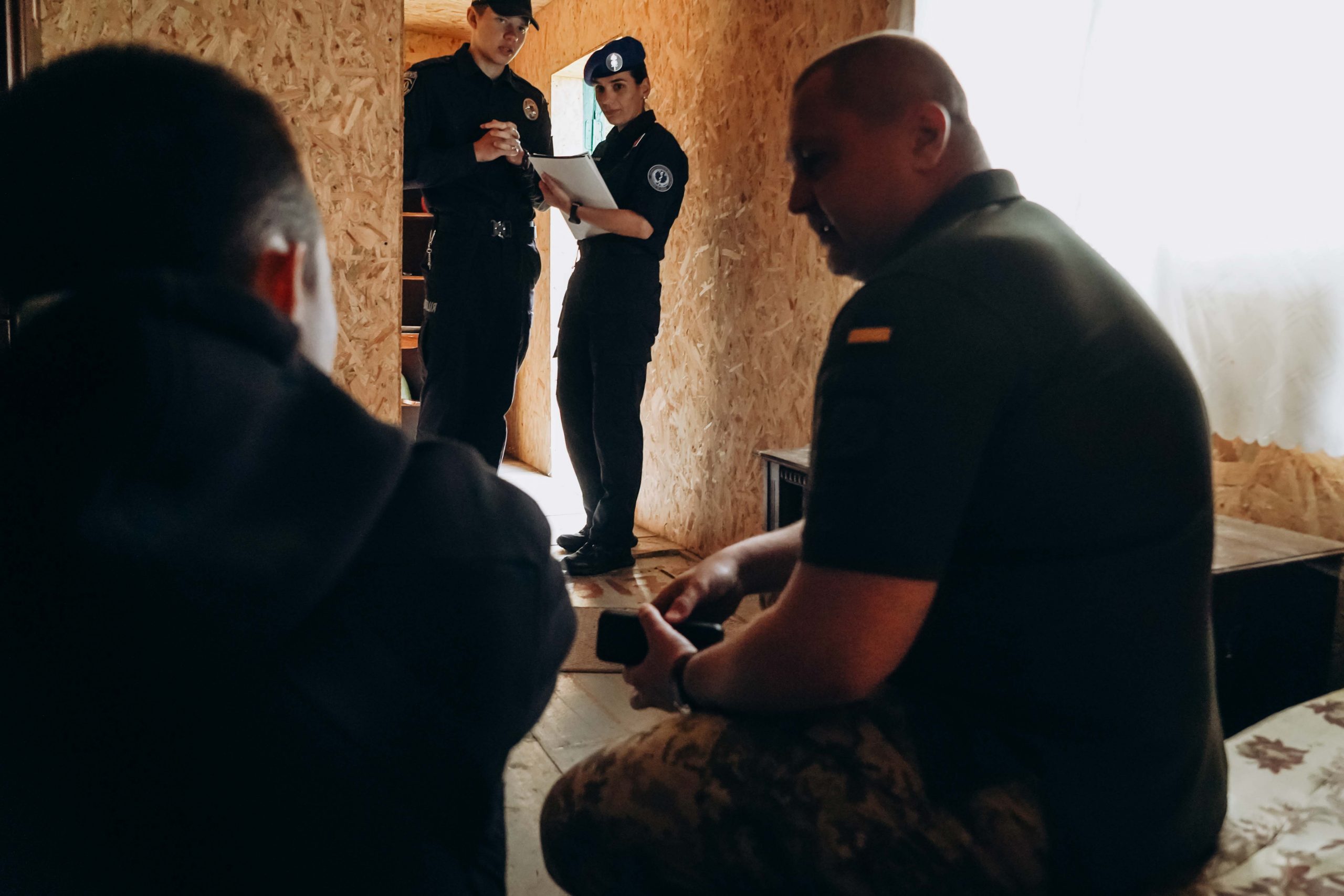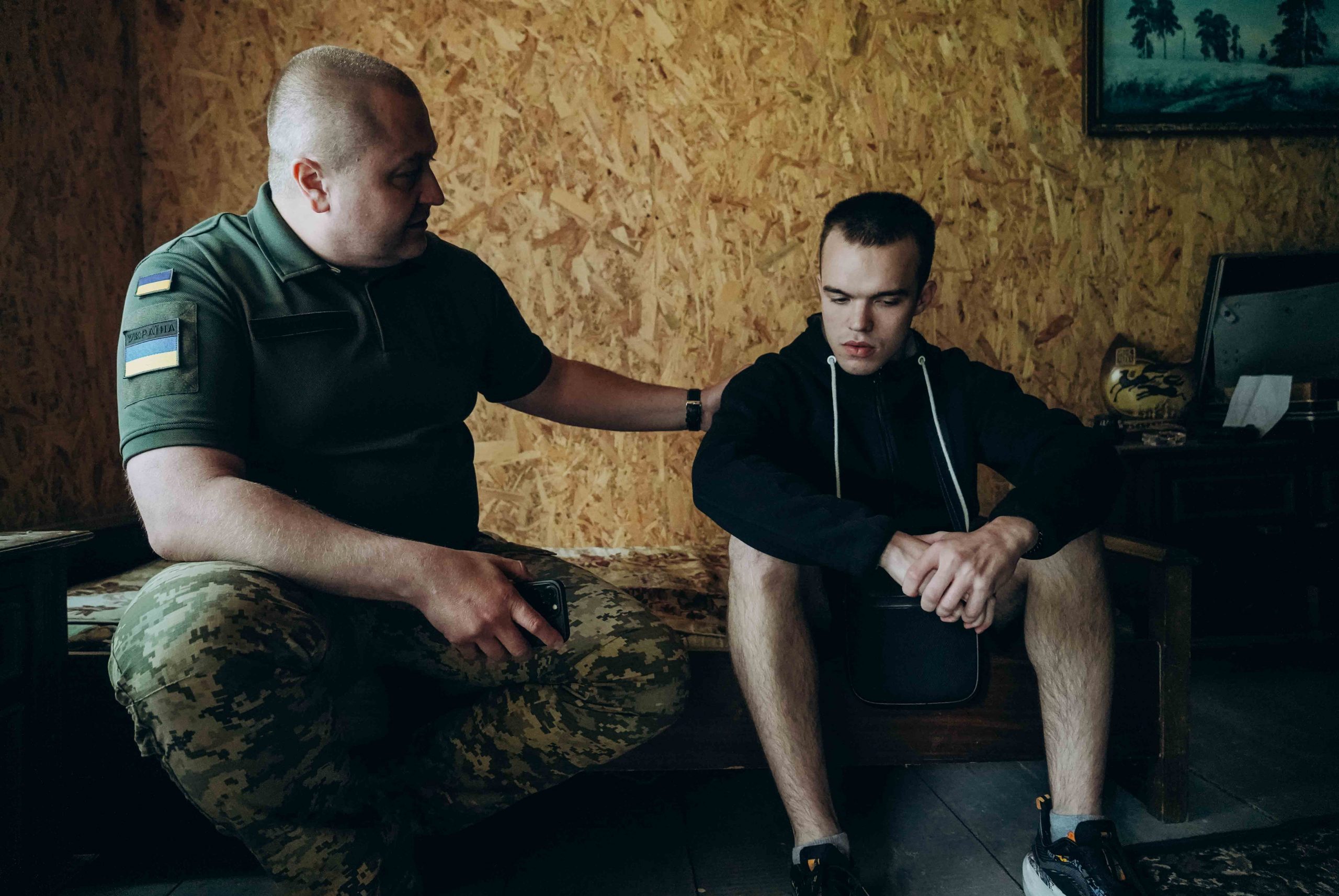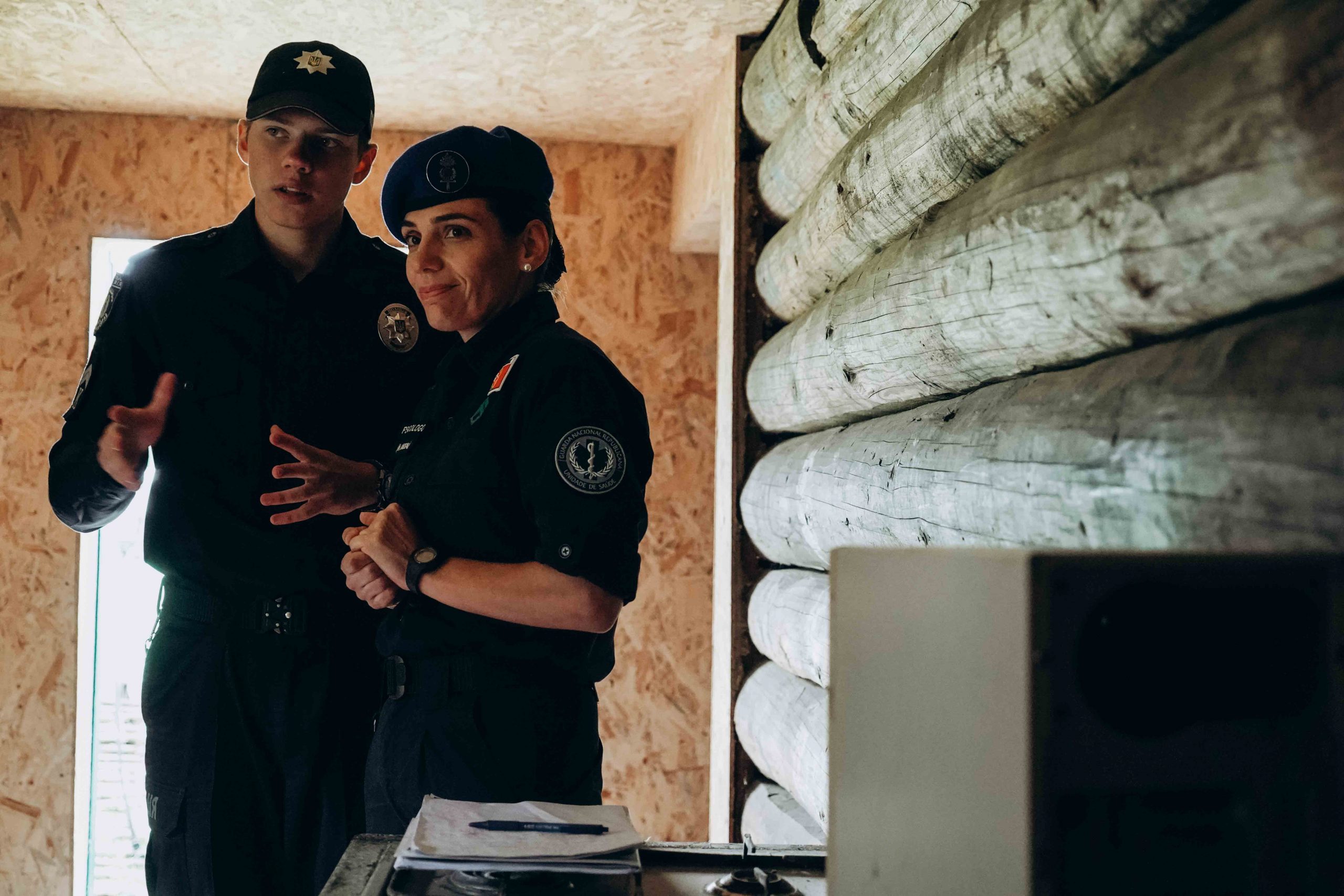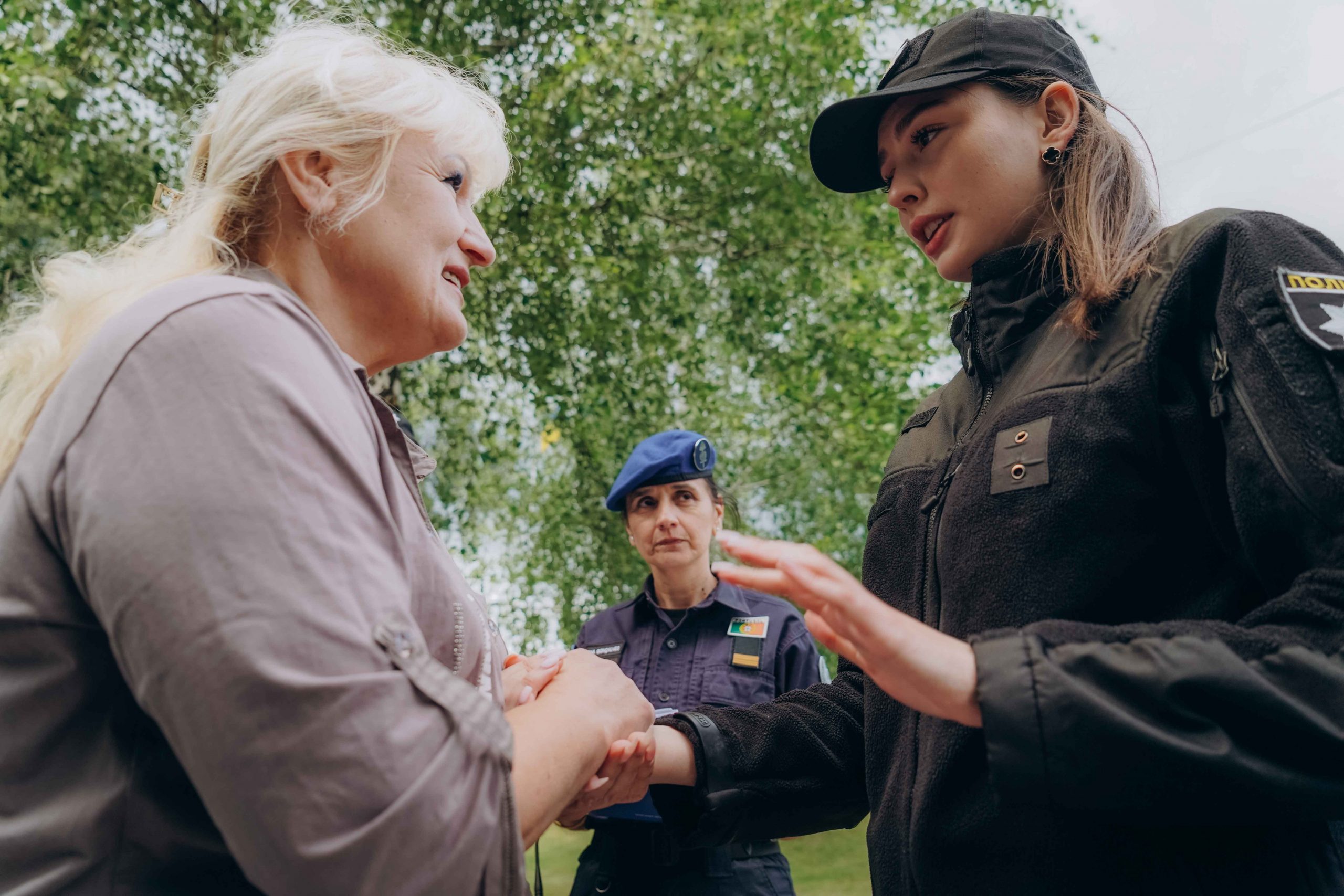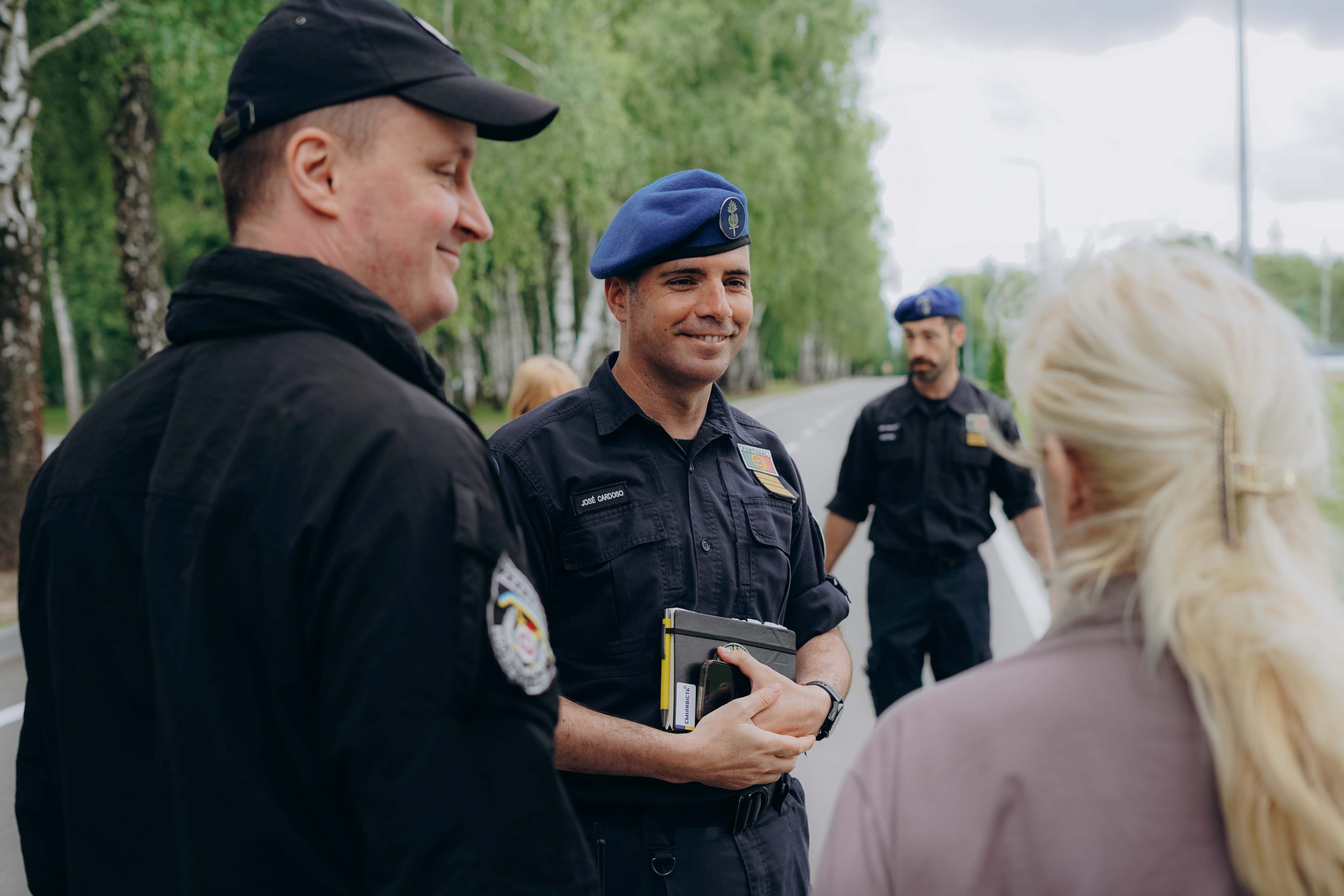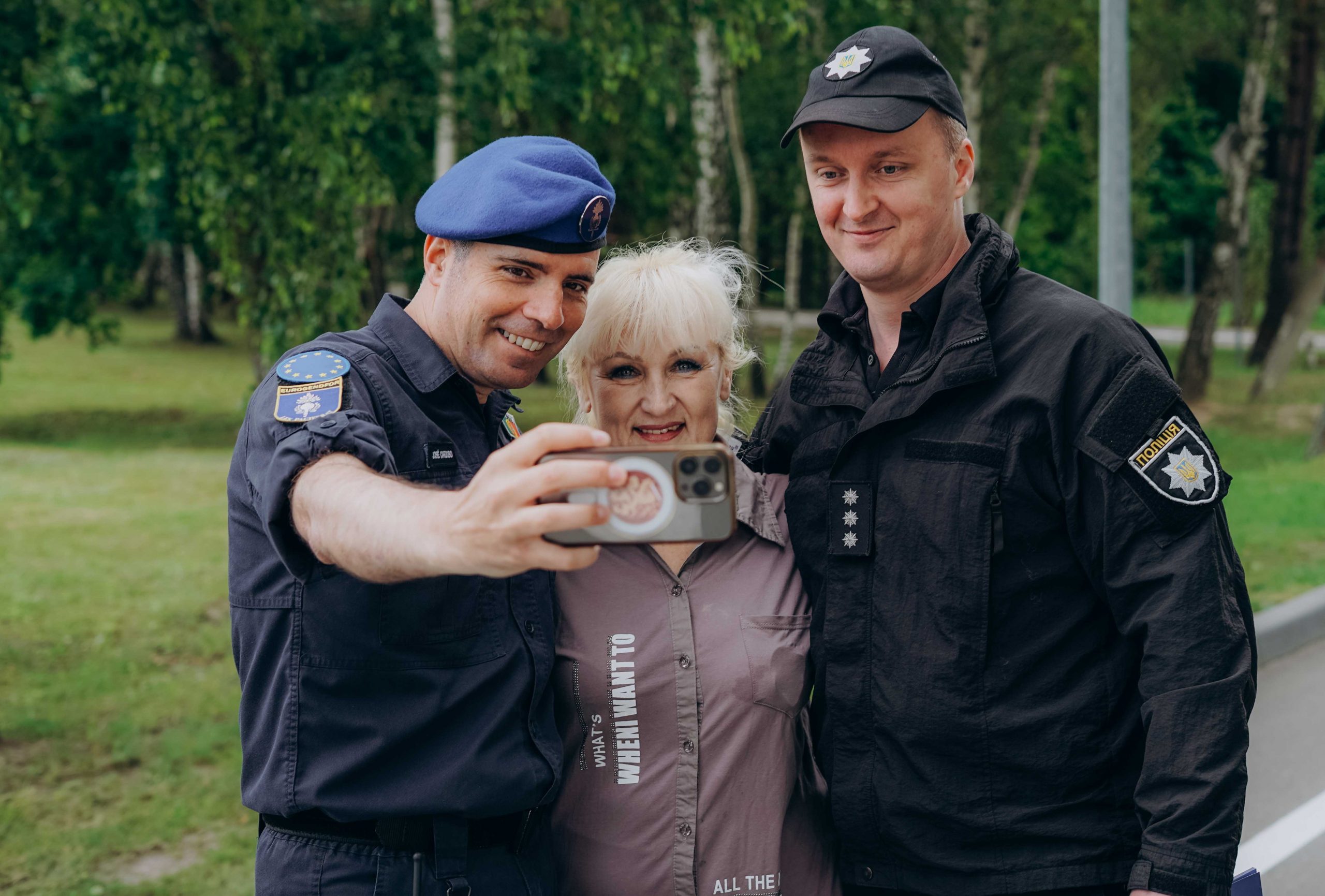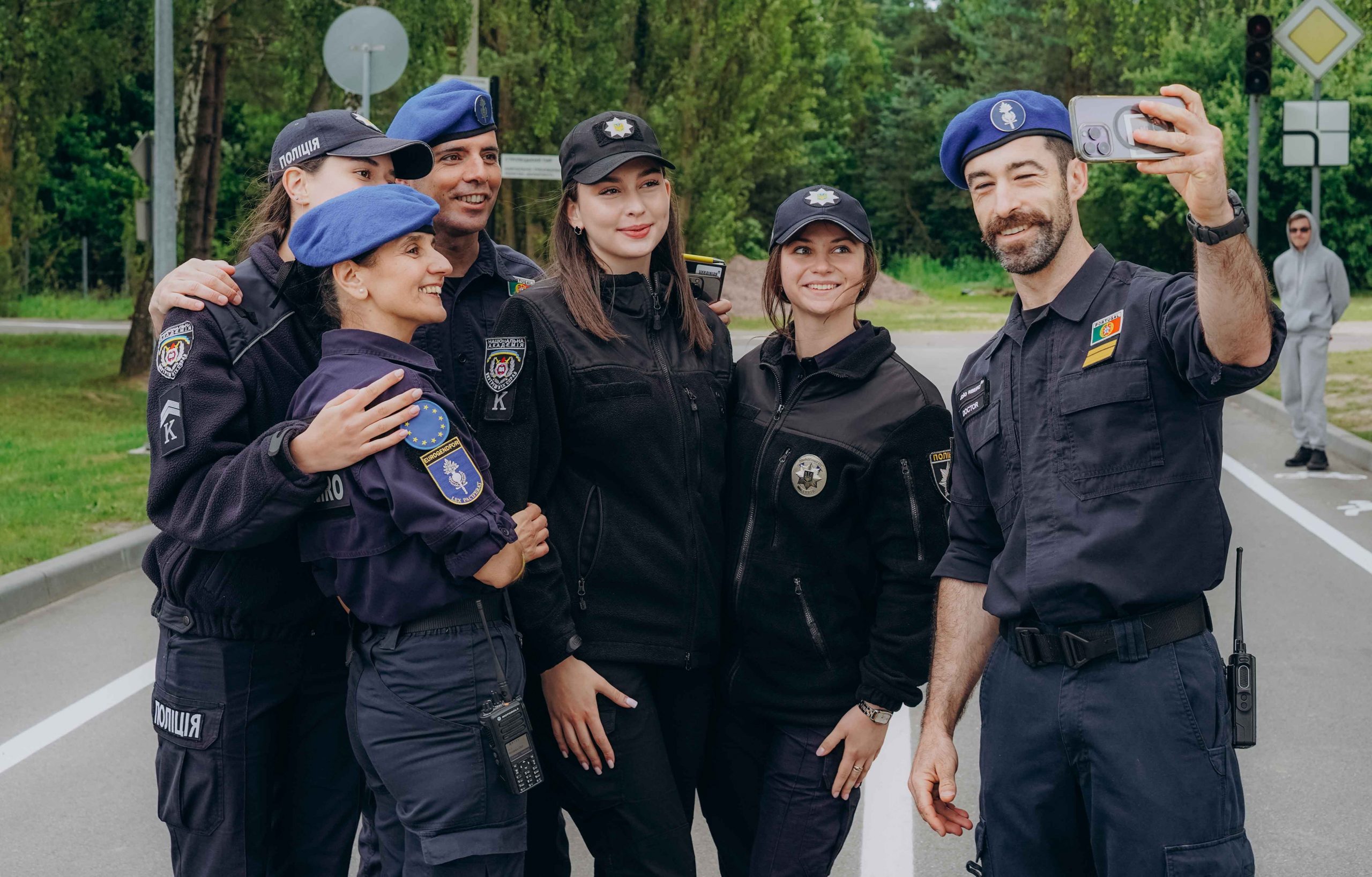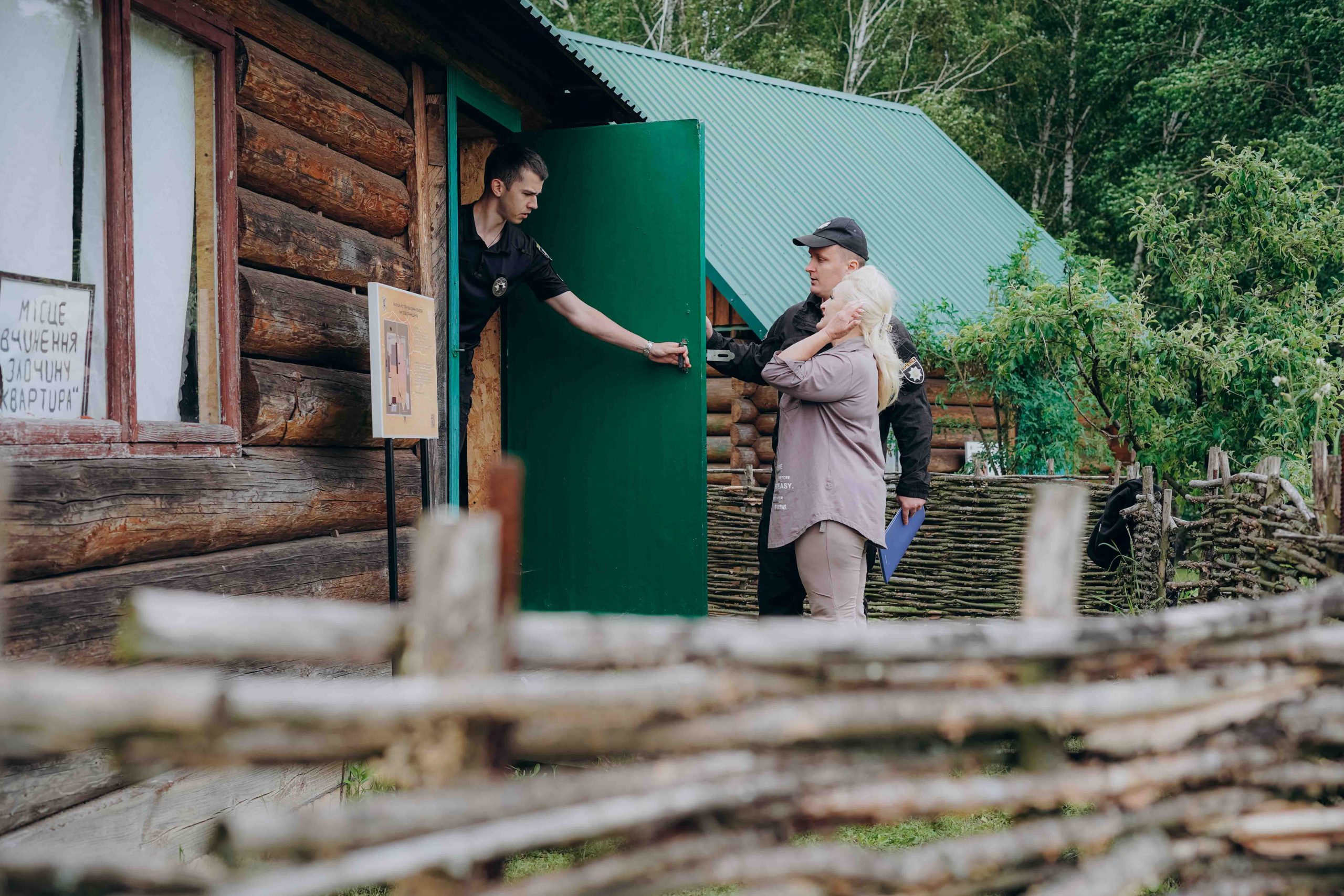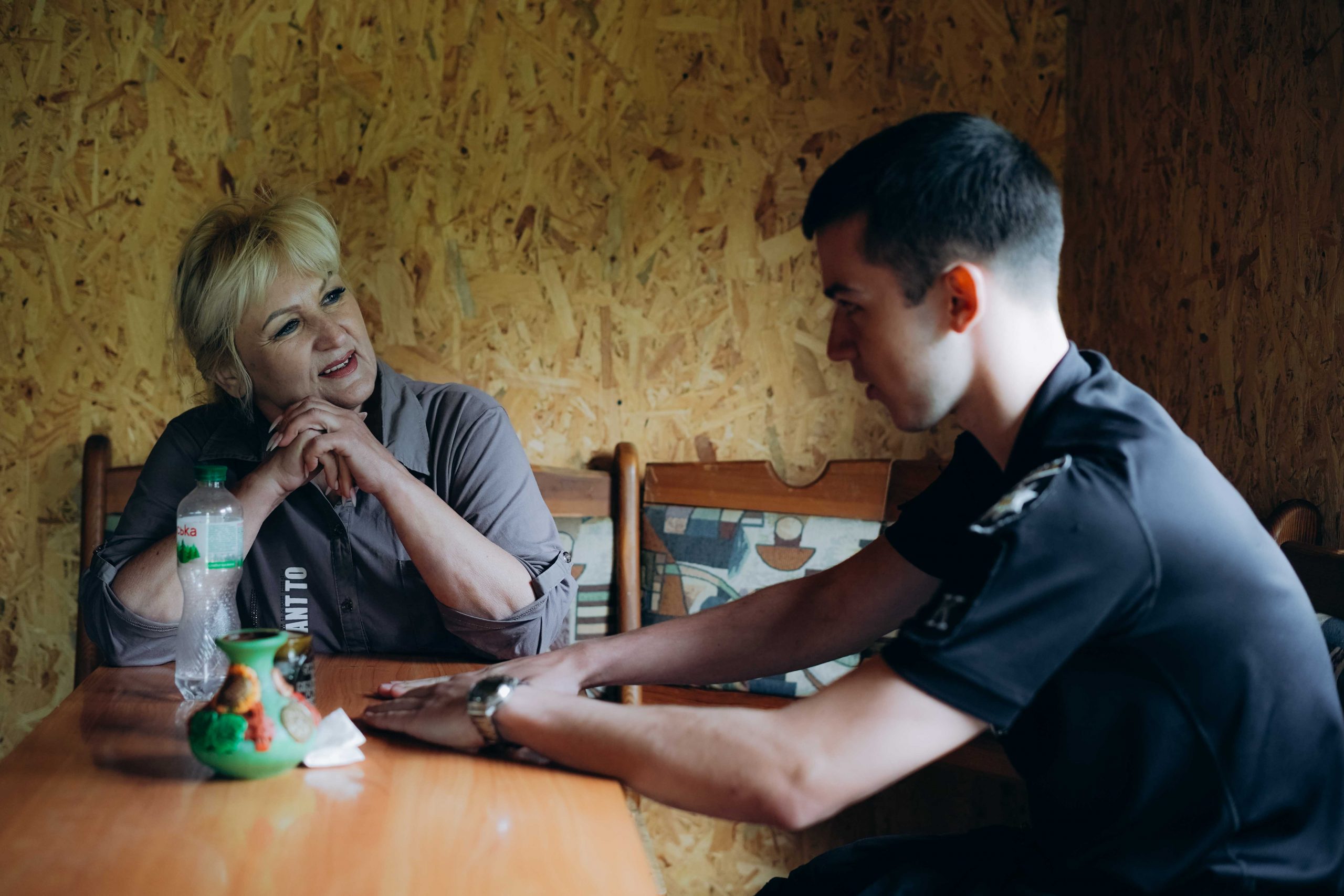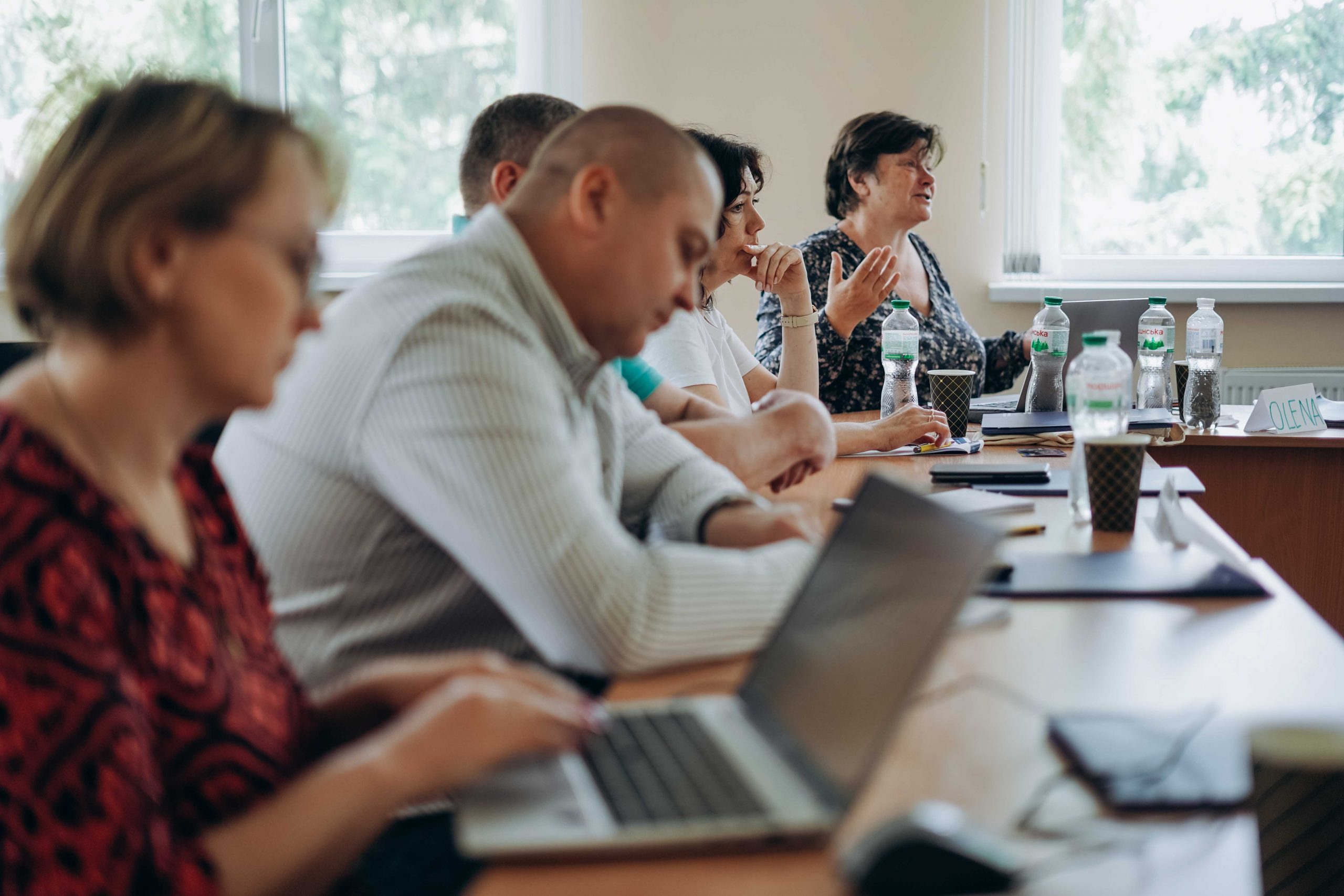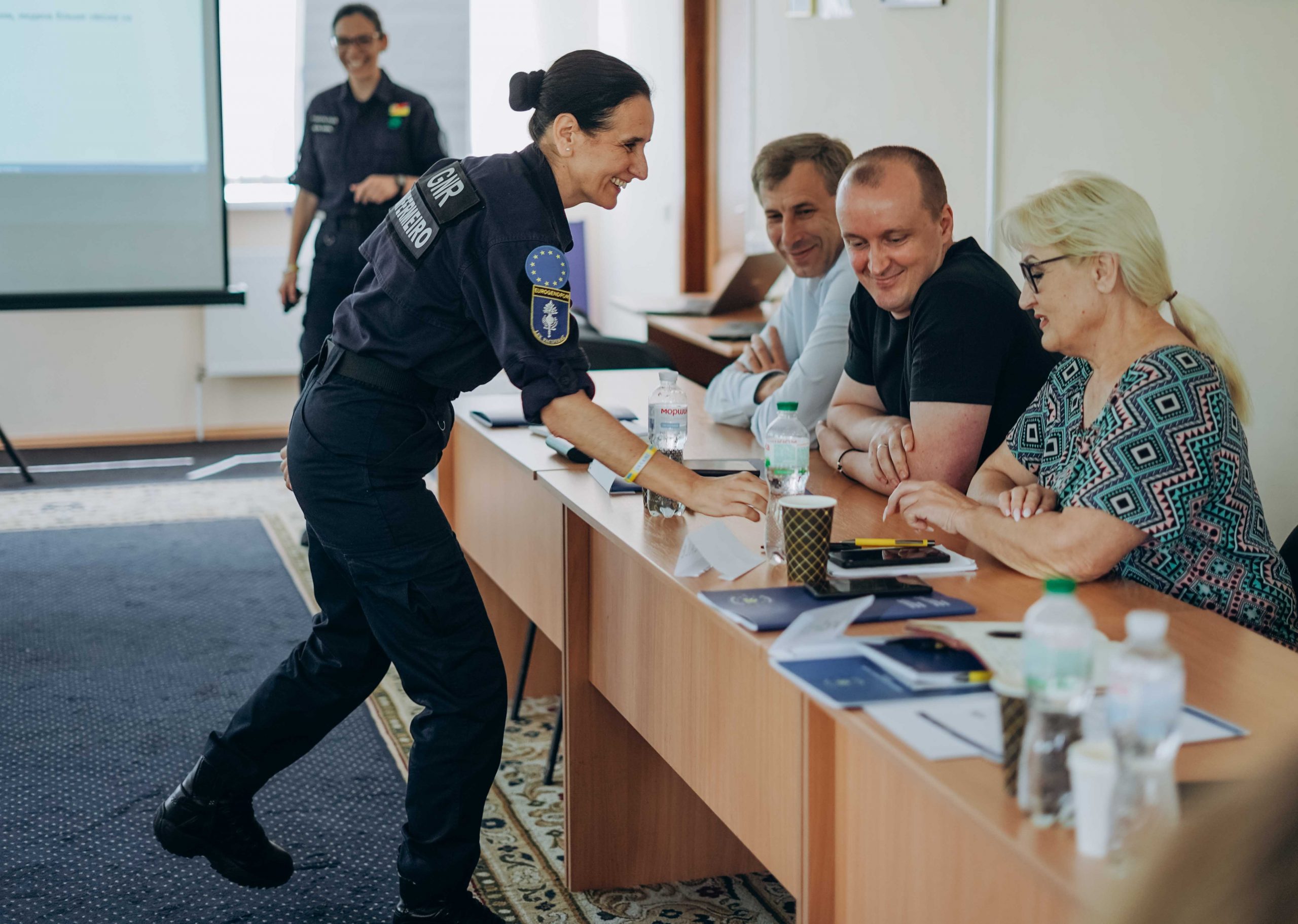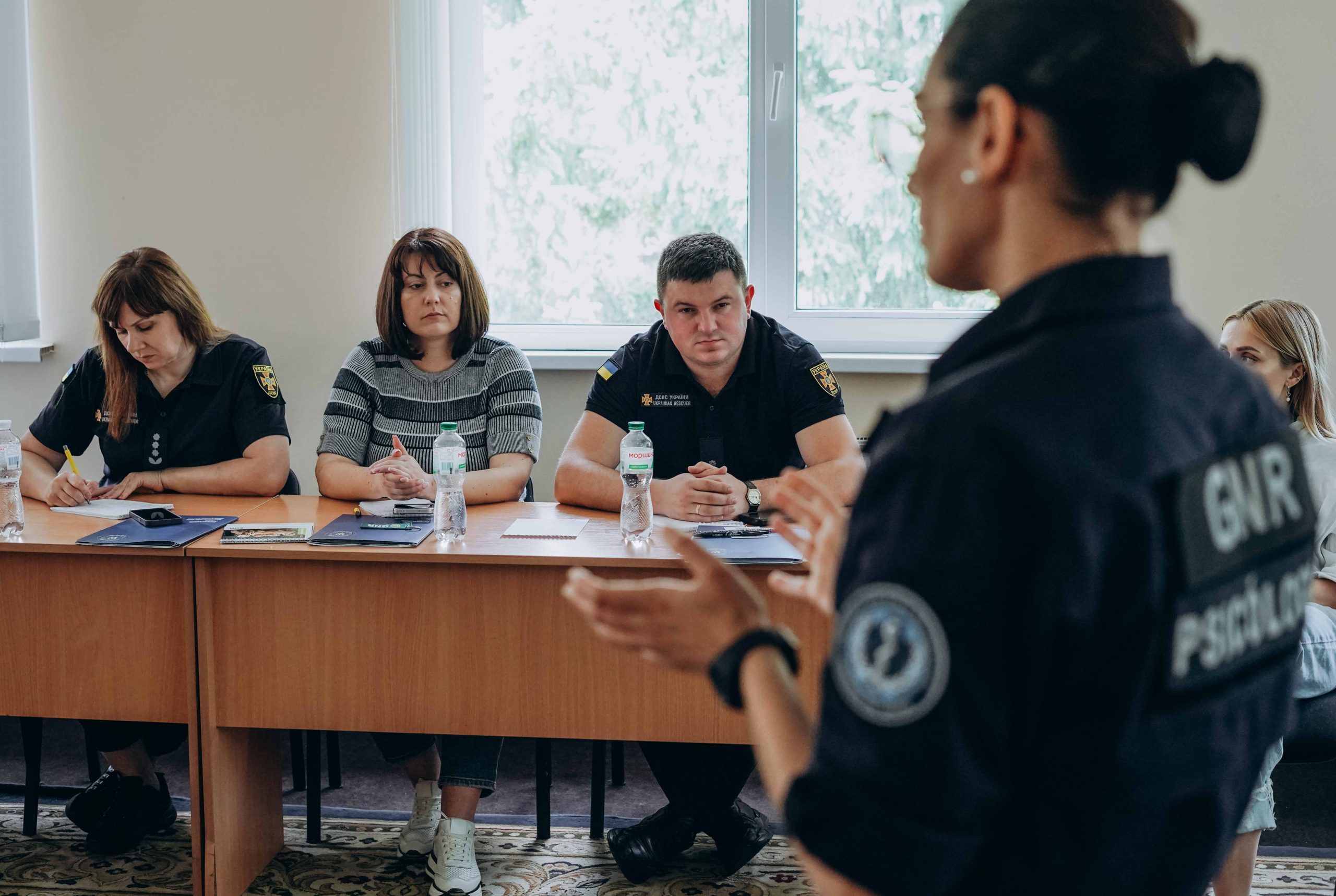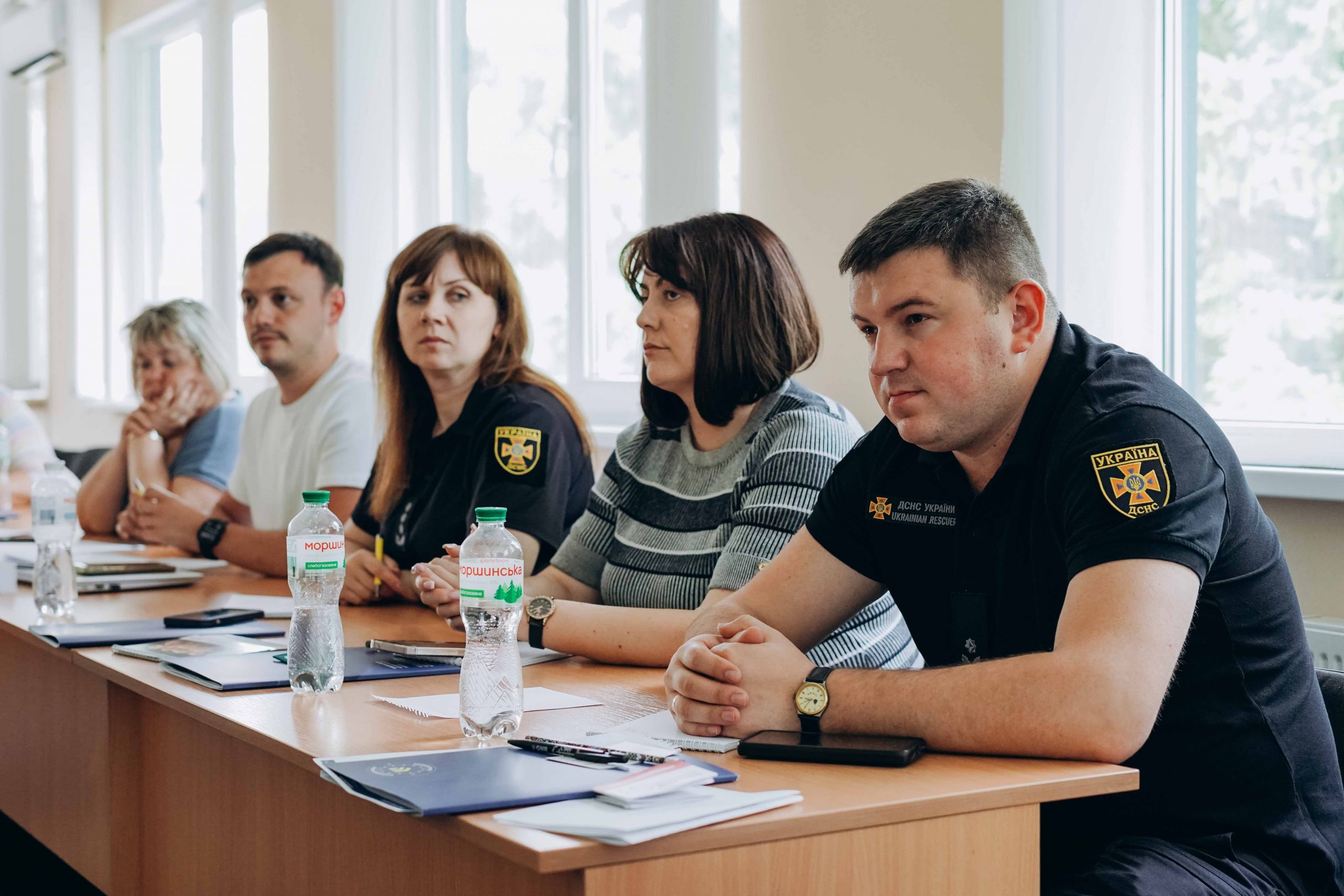Psychological Support in War: When Every Word Matters (Video)
July 01, 2025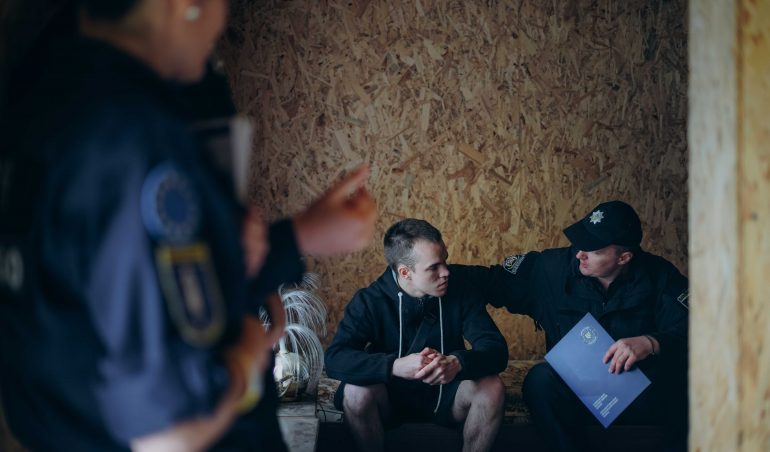
EUAM’s psychological first aid training empowers Ukraine’s first responder psychologists to support survivors with care, dignity, and resilience.
Another night-time Russian missile strike. A residential building is hit. The parents, still in shock, stand before the ruins of their home. Somewhere under the rubble lies their child. As rescuers dig with bare hands and heavy machines, psychologists wait beside the parents – to speak, to console, to bear witness when the worst is confirmed. Someone must deliver the message. And someone must know how to do it without breaking what is left of a human heart.
This is not a scene from a film. This is Ukraine. Every day.
In this unbearable reality, psychological support is no longer optional. It is essential. For first responders. For law enforcement. For communities living under constant threat. And for those who must deliver impossible news with professionalism and compassion.
This is the purpose behind the Training of Trainers (ToT) in Psychological First Aid, recently completed in Kyiv with the support of the European Union Advisory Mission (EUAM) Ukraine. Delivered by a Specialised Team from the Portuguese National Guard (GNR), the training aimed to equip Ukrainian professionals with EU-certified protocols for crisis communication and psychological intervention in war settings.
“This course was extremely useful, mainly because we received a complete framework of knowledge based on international experience,” said Oleksandr Morozovsky, Professor at the National Academy of Internal Affairs and participant of the training. “We saw how our colleagues in Portugal work with stress factors and provide psychological support – and now we can adapt and apply it in our context.”
At the request of the Ministry of Internal Affairs of Ukraine (MoIA), EUAM deployed an expert team to train 60 professionals – including psychologists from MoIA institutions, the National Psychological Association of Ukraine, and EUAM staff – with the aim of cascading the knowledge across the country. Each graduate is now ready to deliver the same training to others and provide first aid in the form of words, presence, and professional care.
“Ukraine today is one large-scale crisis,” said Olena Bohdan, trauma therapist and National Psychological Association representative. “We face trauma not only from new events but from reactivated old pain. And psychological first aid must be in the hands of not just psychologists, but everyone – police, social workers, educators. We all need to know how to respond when a person breaks.”
The training was conducted under war conditions – often interrupted by air raid alerts, sometimes held in shelters – yet the results were not only met but exceeded. Using a mix of classroom learning, practical simulations, and peer exchange, the course focused on the application of European standards adapted to the Ukrainian reality. The methodology, based on protocols from the World Health Organisation and the European Federation of Psychologists’ Associations (EFPA), is already recognised as the best European practice.
“This is not just another training. This is capacity building at a national scale,” explains Lieutenant Colonel José Cardoso, head of the Portuguese GNR psychology department and leader of the deployed EUAM Specialised Team. “With just 88 hours of training per trainer, we can reach over 100,000 first responders across Ukraine. That’s how scalable this model is.”
Participants represented the full spectrum of Ukraine’s internal security system – the National Guard and National Police, State Border Guard and Emergency Services, Civil Protection, and academia. This was very important to get all these institutions together at one table to develop a unified approach to psychological first aid in war. This collaborative spirit, supported by EUAM, reflects a growing alignment with European standards in the most sensitive and critical domain – mental health support during crisis.
“The value of this initiative goes beyond tools and techniques,” said Lieutenant Ana Gonçalves, nurse and instructor from the Portuguese GNR. “It’s about connecting as humans. Participants didn’t just learn — they shared deeply personal experiences. That vulnerability, in the middle of war, is rare. And powerful.”
Indeed, for some, the training was more than professional. It was profoundly personal.
“Two months ago, I lost my son,” shares Olena Bohdan. “But I’m still here. Still working. Still helping. That’s my way of coping. Through pain, I stand with others who are also hurting. And in this course, I felt that I’m not alone.”
When asked what Portuguese colleagues have brought to Ukraine, Olena says: “They brought not just knowledge, but solidarity. They stood with us. That means everything.” “And what is also important,” she adds, “is that they brought a healthy psyche. Because from within, we can’t even grasp how deeply traumatised we are. Their presence reminded us what psychological balance looks like – and that’s something we urgently need to stay effective in our work.”
Colonel Andriy Vashchenko, a senior instructor from the National Guard of Ukraine, echoed the sentiment.
“Each ministry has its own protocols, its own crisis procedures. But here, we looked at the same issues from different angles, and learned from each other. These shared standards, this cross-institutional dialogue – they are just as important as bulletproof vests.”
EUAM Ukraine remains committed to supporting our partners, helping Ukrainian agencies anchor European best practices within their unique operational realities.
And when the next missile hits, when the next family waits outside the rubble, someone will be there – not only to comfort, but to do so safely, professionally, and with the compassion that such moments demand. With the quiet strength of someone who knows what to say when words matter most.


